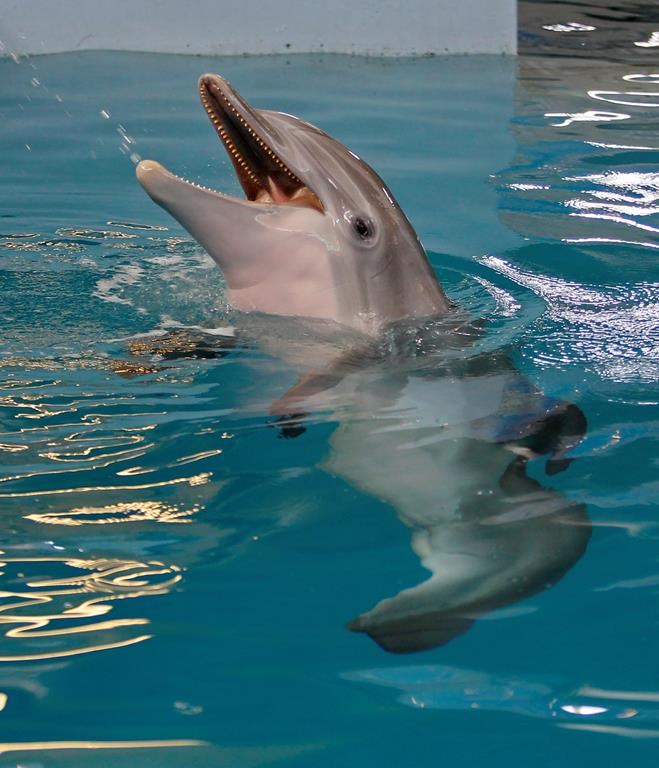A new study examining the brains of stranded dolphins have found markers for human Alzheimer’s disease in three different species of the toothed whales.

A group of researchers from the U.K. and Scotland conducted postmortem tests on 22 animals from five different odontocete (toothed whale) species, including Risso’s dolphins, long-finned pilot whales, white-beaked dolphins, bottlenose dolphins, and harbour porpoises.
These animals had all died after being stranded along Scotland’s coast.
The study’s authors theorized that the brains of dolphins might be similar enough to those of humans that they could suffer from this kind of dementia.
Three animals from three of the dolphin species were all found to have the classic markers of Alzheimer’s disease, the study found. The affected animals were older, as determined by worn or missing teeth. The younger animals from the sample showed no signs of Alzheimer’s.
Scientists do not know the exact cause of this brain degeneration, but they say it could support a theory about why some groups of whales and dolphins run aground or get stranded in shallow water.
The “sick leader” theory posits that a group of mostly healthy marine mammals can get stranded after following a group leader that has become lost or confused.
According to their paper, published in the European Journal of Neuroscience, each of the animals found to have the Alzherimer’s hallmarks showed abnormal levels of the beta-amyloid protein in their brain, which had accumulated into plaques that disrupt brain activity. They also found tangles of another protein called tau inside neurons, as well as a build-up of inflammation-inducing glial cells.
However, pathologist and lead researcher Dr. Mark Dagleish said in a press release that it’s too soon to tell whether this brain damage could present in the same way as Alzheimer’s in humans.
“While it is tempting at this stage to speculate that the presence of these brain lesions in odontocetes indicates that they may also suffer with the cognitive deficits associated with human Alzheimer’s disease, more research must be done to better understand what is happening to these animals.”
Dagleish said the research raised further questions for Alzheimer’s research in animals and humans.
“If these are the only animals that spontaneously develop these lesions, further study may give us some sort of help and insight into what happens in the very early stages of the development of these lesions. If we can determine the likely triggers of this, can we work out ways to treat or prevent it?”
- Stuck in B.C. lagoon for weeks, killer whale calf is finally free
- Invasive strep: ‘Don’t wait’ to seek care, N.S. woman warns on long road to recovery
- T. Rex an intelligent tool-user and culture-builder? Not so fast, says new U of A research
- Nearly 200 fossil fuel, chemical lobbyists to join plastic treaty talks in Ottawa








Comments